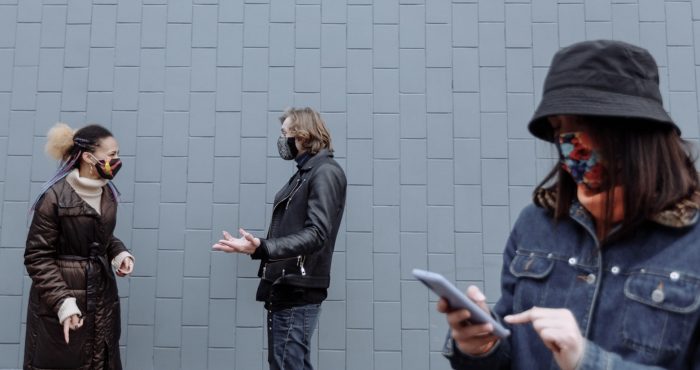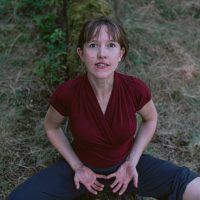We’ve lost the village, and COVID-19 isn’t to blame.
For many, these last few years have seen our circles shrinking.
If we’re honest with ourselves, we’ve been feeling lost, isolated, and without purpose for quite some time. COVID-19 came along to make this fact painfully obvious.
From the terrible loss of life, related sorrow, and grief to the economic repercussions of lockdown measures that we will be recovering from for decades—the Coronavirus has affected us in unimaginable ways. “My life hasn’t changed much” is a sentiment that chills me to the bone.
Between working nine-to-five, not to mention side hustles, maintaining our intimate relationships and family, we might have time to see one or two friends at the most outside of our packed schedules. Community has never been such a hot topic and incentive commodity—it seems to be the latest catchphrase adopted by capitalism because it knows how empty it has made us feel.
We all know everything has moved online. Groceries? Get them delivered. Friends? Find them on Facebook. The direction toward a virtual world was already there; the pandemic only highlighted how dependent on it we’ve become.
Don’t get me wrong. Lockdown measures have saved lives. But in this strange time-out-of-time, perhaps we have the opportunity to reimagine how we want the village to be. Perhaps, we might actually begin to miss a little of that good old human contact. Perhaps we will miss getting sweaty and dancing. And perhaps, if we get lonely enough, we will miss something ancient too. A distant memory in our bones of what it meant to be fully seen, celebrated, and supported. To be relied on, and to rely upon others.
Some people have been quick to blame lockdown measures for an increase in mental health problems like depression or even suicide. It’s true there has been a rise during these times. I have lost four of my high school graduating class to suicide in 2020 alone, but the truth is that suicide rates have been rising for decades. If we are looking for the real culprit of mental health, it is surely the loss of the village.
So what is really to blame for the loss of the village? And what does village mean anyway in today’s world?
Capitalism covers up the human dependency we have on one another. It says, “We have a machine for that,” though someone had to make the machine. It says, “You can get it delivered,” when someone we don’t know carries our precious parcel in their van and delivers it to our doorstep. Capitalism says we don’t really need one another.
But this pandemic has surely popped the myth of individualism. It has shown us that if we truly care for one another, we have to come together and have a heart. We can’t be rugged individualists any longer. We can’t be an island unto ourselves. The irony is that now we might be more isolated than ever. But from this place, we have the opportunity to reach out. We have the opportunity to connect, albeit in different ways. We have the opportunity to build the village again. It is urgently needed now.
The village is a community that we know and who knows us quite well. They might be our friends, our lovers, elders, children, animals, or places. The village is first rooted in place. It is out of the land that culture arises, out of that deep connection, love, and respect for the earth.
Wherever we are in the world, and whatever or however the pandemic looks like in our region, we still have the ability to connect to the natural world around us. Here we can sow seeds of renewal by finding our place in the world of trees, plants, sunshine, rain, and wild animals. Here is where we will find our animal body, the part of us that comes alive in the woods—or on a mountain top.
When we spend time with nature, we will notice that she opens to us. That it becomes a little easier to let our guard down with others. The elements are like thousands of tiny, gentle therapists, whispering in our ear to let go, to relax, and to open. When we return from our time in the wild, we can let others in a little more easily. We are a little less afraid because we realize we are safe when we know and are known.
The village is built on relationships of reciprocity, which means relationships of mutual benefit. Think of a garden where both you and the plants benefit from our actions.
If we think about our time spent online, it is a good question to ask, “Is this time truly benefitting me as much as it is benefitting the corporations that are vying for my time, attention, information, and money?”
Perhaps we have an online community that really fills us up. And if that’s the case, we should hold on to it dearly, give ourselves fully to it, and practice opening up. Human connection is such a deep-seated need that we will always find ways to stay connected with one another. But let us not forget—as Brené Brown so beautifully reminds us—the crux of connection is vulnerability.
Let us find the village again in our openness and honesty with one another and pave the way for richer connection when this pandemic is over.
It’s important to remember that the village is not a community of people who think the same way as we do.
The village existed before words like audience, market, and niche. The village was often people we didn’t like but had to get along with for survival. There were probably people in that village that drove us crazy—as anyone living in a rural community can attest. But we didn’t cast them out because we knew one day we might need to rely on that person.
Even in our globalized, virtual world, this is still true: we need one another.
We may think it is money that helps us survive and replace the village. But pandemics blow this illusion out of the water too. No one is safe from illness and death. When faced with these hard but natural parts of life, money is a poor remedy. For that, we need only one thing: compassion.
The village teaches us about compassion. We know that we need the earth for food and shelter. So we are compassionate toward her. We know we need each other for skills we may not have. So we are compassionate toward one another. We also know that no matter how different our beliefs, we all face the same hard truths of suffering, illness, and death.
So when the pandemic is over, I urge you to not just get back to normal. If we really accept a new normal for months or years to come, let’s envision a future that includes the village. It will probably look a lot different than it used to. It might involve a combination of virtual and real-world communities. But it will always include a connection to place, a connection to our vulnerability, to people with different views than us. It will be based on compassion and connection.
Let’s dare to have our lives changed profoundly—and rebuild the village from the ground up.
~









Read 2 comments and reply